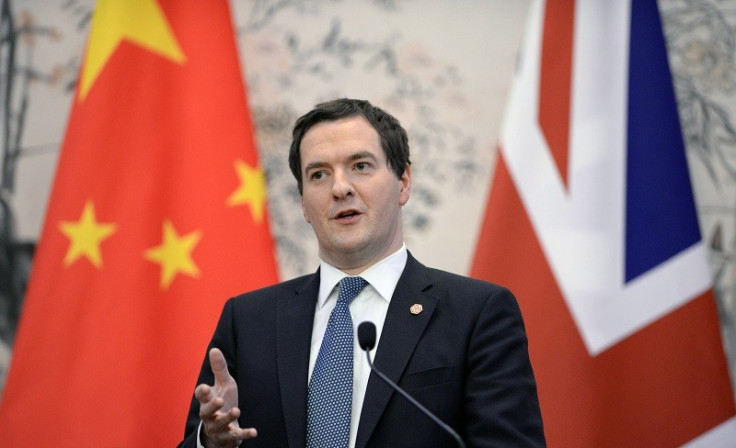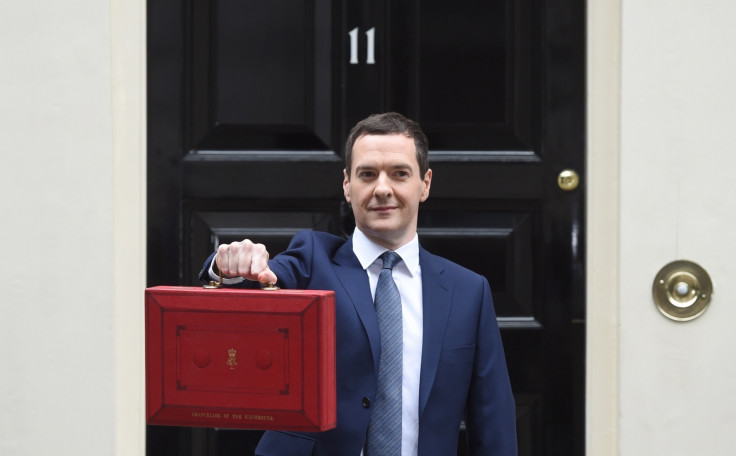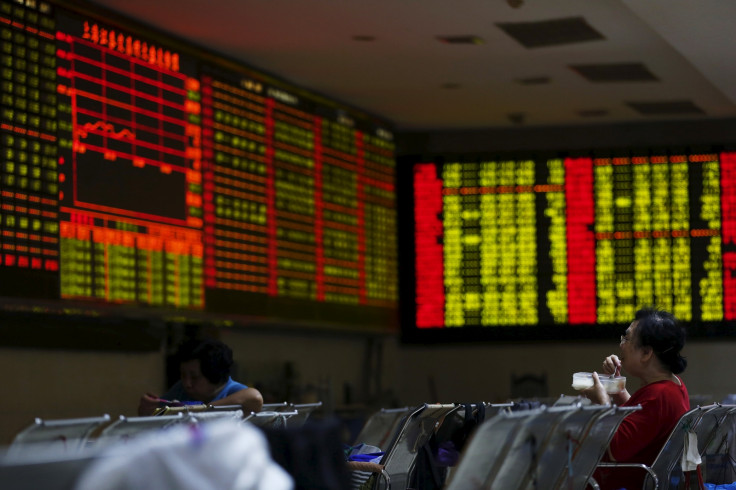China's slowdown is killing George Osborne's UK exports dreams

If it wasn't dead before, UK Chancellor George Osborne's £1tn target for the total value of British exports by the end of the decade has been put stone cold into its grave by China. The Chinese dragon, once awakening and on course to become the world's largest economy, is falling back to sleep again -- and that's bad news for the UK.
China is engulfed by a torrent of financial turmoil. Its volatile stock markets have crashed. Growth of its powerhouse economy is slowing sharply. And it has slashed the value of its currency in a desperate bid to boost its exports to the rest of the world.
Under his plan to rebalance the British economy towards manufacturing and exports, Osborne set up a number of export finance schemes to help trading firms, has toured the world trying to do trade deals, and had China firmly in his sights as one of the UK's priority markets. In one eye-catching deal with the Chinese, semen from British pigs will be exported.
London is vying to become the world's leading renminbi trading hub outside of China. Osborne even unveiled a fast-track visa system for wealthy Chinese investors who wanted to pump money into Britain. Now all this work may be undone and his £1tn ($1tr) target for exports, unveiled in the 2012 budget, relegated to pure fantasy.
"There's no way that target is going to be achieved," Scott Corfe, associate director at the Centre for Economic and Business Research (CEBR), told IBTimes UK. "There is this ongoing issue about the need for the UK to rebalance its exports away from Europe. The thing everyone's been saying over the past decade or so is the UK needs to export more to the BRIC economies. But actually if you look at the data for Brazil, Russia, India and China now, all of these economies are in a pretty poor place right now. So that rebalancing act doesn't look achievable at the moment. And given the trajectory of these economies, it doesn't necessarily appear desirable either."

The UK does not currently do a large amount of trade with China when compared with other partners. Bilateral UK-China trade is around £43bn per year versus £143bn in UK exports alone to the EU. CEBR's Corfe stresses that the biggest impact on the UK economy of China's currency devaluation will be to hold inflation down because of cheaper Chinese exports, an issue exacerbated by the current strength of sterling. The consequence of this could be delays to the tightening of monetary policy by the Federal Reserve in the US and the Bank of England in the UK. Both central banks are looking for the right time to raise interest rates from their current historic lows as their economies see a return to robust economic growth and higher employment.
"What this means is that in a lot of the countries where inflation is already zero, we're going to see even more deflationary pressures going forward," Corfe said. "On top of all the falls in commodity prices recently -- we've had the price of oil trending down -- now we're possibly going to have cheaper Chinese exports as well. I think what it means is inflation is going to be lower for longer in the UK and Europe and the US and elsewhere."

Some economists, however, suggest the Chinese slowdown is a blip and that, fundamentally, it has not veered from its pathway to becoming the world's number-one economy.
"Growth in China clearly moderated in July, in line with expectations for the third quarter and second half of 2015," said Brian Jackson, China economist at IHS Global Insight. "That slowdown acknowledged, it is also clear that the dynamics of the economy remain fundamentally unchanged, despite some wailing in June amidst the stock market meltdown. Following that drama, domestic growth remains slower than a year ago, but by no means is collapsing. Structural adjustment in the economy is clearly continuing, with considerable pain in some sectors and ample rewards in others. In short, China's economic growth path has not change materially in the last several years, let alone from June to July.
"The government's views on its role in the economy also remain unchanged, particularly as a bulwark against volatility, particularly the negative type. A gradual slowdown is tolerable, but a rapid one is not. This explains infrastructure investment and other government spending growing at roughly twice the rate of overall investment; this is likely to persist in the second half as the government continues to cushion against slowing in other portions of the economy. This week's exchange rate policy change likely will ultimately be viewed as step towards greater market forces, including allowing the CNY to devalue when China's economy worsens in aggregate."
© Copyright IBTimes 2025. All rights reserved.






















